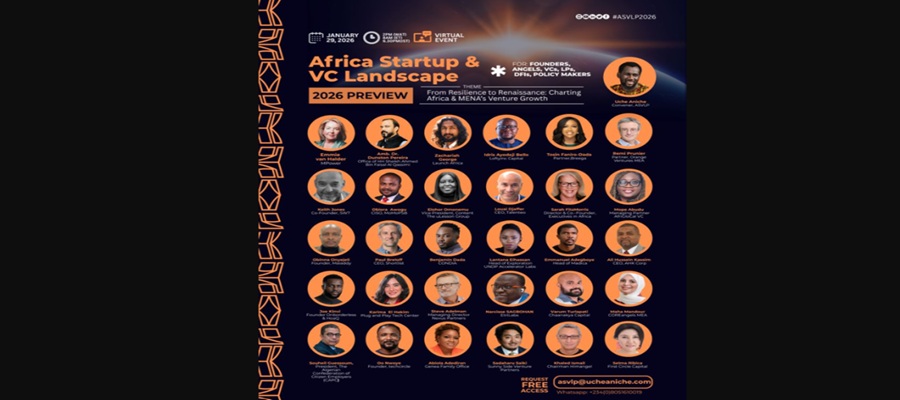Telecom
Interconnect, Others’ Switch Over 1Bn Minutes Traffic-WTL

World Telecom Labs (WTL) on Tuesday, announced that close to one point four billion (one thousand million) minutes have passed through its specialist 2nd generation VoIP switches deployed by five of Nigeria’s interconnect exchange carriers.
WTL disclosed this during the annual NigeriaCom telecoms conference and exhibition, when all five of the carriers will be presented with a trophy to mark this historic occasion.
Licensed by the Nigerian Communications Commission (NCC), the carriers, Breeze Micro, Exchange, Interconnect Clearinghouse (ICN), Niconnx and Solid, were established to increase competition and transparency in the Nigerian telecom marketplace.
The four leading mobile operators in Nigeria are now all required to divert 10% of their inter-carrier voice and SMS traffic to one of these operators.
The five licensees started offering services at the end of last year initially acting as wholesale interconnect carriers for TDM voice traffic.
Nigeria CommunicationsWeek gathered that they are using WTL’s switches to transfer traffic between the four existing mobile networks.
WTL is also helping the operators with their billing systems and the optimisation of voice traffic to increase capacity and reduce costs.
Leigh Smith, managing director of WTL, said “What a triumph for the NCC. The benefits of introducing the new carriers are clear: a huge amount of traffic is being taken off the infrastructure of the established carriers in Nigeria thereby freeing up capacity, increasing speeds and reducing latency. In addition, there is greater transparency and openness in the market.”
On his part, Jihad Jaafar, CTO of Breeze Micro, said “The billionth minute is a significant moment for both Breeze Micro and our interconnect exchange carrier colleagues. WTL has been instrumental in our success. Its team of experts continues to be generous in sharing their knowledge and experience which is benefiting both the telecoms market and indeed the people of Nigeria.”
WTL’s range of 2nd generation VoIP and hybrid VoIP/TDM switches have been specifically designed to replace the huge, expensive, maintenance-heavy switches that have traditionally been used to transfer VoIP traffic onto other networks.
They are capable of handling 1000s of simultaneous calls.
WTL’s VOIP and TDM voice optimisation services and equipment are being used by a number of operators throughout Africa and the Middle East and have a number of advantages over traditional switches.
It shows they are VoIP ready – WTL specialises in VoIP switches and so the switches installed in Nigeria can be easily switched from traditional TDM to VoIP once the existing mobile operators are ready to use VoIP as a means of interconnecting.
Highly reliable even under very heavy traffic loads, WTL’s switches are also simple and easy to run so they don’t need a dedicated, full-time engineer (unlike traditional switching equipment).
Service and support – WTL offers constant support and consultancy to all five operators.
Small footprint –WTL’s switches are physically small occupying 0.5 racks compared to the multiple racks needed by traditional voice switching vendors. Smaller racks means less power and reduced OPEX.
WTL’s switches are also easy to scale. The five Nigerian licensees all plan to set up multiple POPs throughout Nigeria to enable local switching and so want to ensure that their CAPEX is kept low.
WTL is exhibiting at NigeriaCom in Lagos on September 16 and 17 2014 where Leigh Smith will be available for meetings.
World Telecom Labs is a Belgium-based company which has long been a leader in the provision of VoIP switches, Pre-Paid applications and signalling gateways for emerging carriers and telecom service operators.
WTL has an installed base of 100,000s of voice ports with service providers worldwide switching billions of minutes of VoIP traffic using WTL equipment.
Telecom
ASVLP 2026: Africa, MENA VCs Gear Up as Tech Funding Hits $4.1bn Rebound

As Africa and MENA’s startup ecosystems transition from post-correction resilience into a new phase of disciplined growth, the Africa Startup & VC Landscape Preview (ASVLP 2026) will convene leading founders, investors, policymakers, and ecosystem builders on January 29, 2026, for its second annual, agenda-setting virtual forum.

Following a challenging global venture cycle, 2025 marked a notable rebound across the African ecosystem, with startups raising an estimated $3.2–$3.3 billion over the full year.
The recovery was accompanied by significant structural shifts: Kenya emerged as the leading destination among Africa’s “Big Four” markets for the first time, while Nigeria recorded a year-on-year funding decline, reflecting changing investor preferences, macroeconomic pressures, and a broader recalibration toward capital efficiency and sustainability.
Sectorally, fintech remained the most funded vertical, while climate & energy, AI-enabled solutions, healthtech, and infrastructure-adjacent businesses gained increasing attention. Across Africa and MENA, development finance institutions (DFIs) and family offices played a more pronounced role in anchoring funds, deploying catalytic capital, and supporting blended-finance structures, reshaping how early-stage and growth capital is mobilized.
ASVLP 2026 is designed to translate these data points into forward-looking strategy.
The forum will bring together venture capitalists, angel investors, LPs, DFIs, family offices, founders, corporate leaders, and regulators from Africa, MENA, Europe, and North America to assess 2025 outcomes and chart priorities for 2026.
The program will feature keynotes, fireside chats, panels, and deep-dive roundtables, including discussions on:
· The 2026 Africa & MENA FinTech Landscape, focusing on security, profitability, regulation, and growth frontiers
· Emerging Fund Managers, capital formation, and LP alignment
· Talent, operator depth, and institutional capacity as constraints to scale
· Regulatory evolution and cross-border market integration
A major highlight of ASVLP 2026 will be the Final DealRoom Pitch Session, where a curated group of high-potential startups will present to an experienced panel of investors.
• Founders can apply to pitch via: bit.ly/ASVLP-DR-Founders
• Investors seeking DealRoom access can request entry via: bit.ly/ASVLP-DR-Investors
Confirmed speakers for ASVLP 2026 include Khaled Ismail (HIMangel), Idris Ayodeji Bello (LoftyInc Capital), Zachariah George (Launch Africa), Tosin Faniro-Dada (Breega), Selma Ribica (FirstCircle Capital), Maha Mandour (COREangels MEA), Joe Kinvi (Borderless), Remi Prunier (Orange Ventures MEA), Karima El Hakim (Plug and Play Tech Center), Souheil Guessoum (President, The Confederation of Citizen Employers – Algeria (CAPC)), Remi Prunier (Partner, Orange Ventures, MEA), Maha Mandour (COREAngels MEA), Ali Hussein (President, Kenyan FinTech Association), Patrick Okebu (CIO, Interswitch Group) among other leading voices shaping capital, policy, and innovation across the region.
“The conversation has shifted,” said Uche Aniche, Convener of ASVLP. “It’s no longer about whether capital will return to Africa and MENA, but what kind of capital, deployed with what discipline, and in service of which long-term outcomes. ASVLP exists to help the ecosystem make sense of that transition.”
Participation in ASVLP 2026 is free but strictly by invitation.
Interested participants are encouraged to repost the official announcement on LinkedIn and comment #ASVLP2026 to receive a private registration link. They could also email [email protected] and request invite.
Telecom
TikTok, Instagram Blamed in US Youth Suicide Lawsuit

Major social media giants Meta Platforms, TikTok and Alphabet’s YouTube will face a landmark jury trial this week in Los Angeles County Superior Court over allegations that their addictive designs have fuelled a youth mental health crisis, marking the first such case to reach this stage.

Social Media
The pivotal personal injury lawsuit centres on a 19-year-old Californian woman identified as K.G.M., who claims her childhood immersion in Instagram, Facebook, YouTube and TikTok—engineered with endless scrolls, autoplay videos, notifications and algorithms—sparked severe anxiety, depression and suicidal thoughts.
Dozens of similar suits have surged since 2022 from families, schools and states, accusing the firms of burying internal research on teen harms while prioritising ad revenue through youth-targeted engagement hooks, despite Section 230 protections for user content.
Plaintiffs seek damages and design overhauls, arguing platforms bypassed parents and preyed on vulnerable kids; defendants counter there’s no clinical “social media addiction” diagnosis, no proven causation—kids with issues often use less—and they’ve added safeguards like parental controls and time limits.
Echoing Australia’s under-16 bans, the trial will scrutinise thousands of internal documents, expert testimonies and K.G.M.’s story, potentially expanding tech liability amid debates where studies show complex links, not direct causation, between screen time and disorders like eating issues or self-harm.
A win could mandate warning labels, age gates or algorithm tweaks, reshaping global platforms as U.S. Surgeon General advisories and global scrutiny intensify pressure on Big Tech to prioritise child safety over profits.
Telecom
Meta Tests Paid Subscriptions Across Instagram, Facebook, WhatsApp

Meta is gearing up to trial paid subscription services on Instagram, Facebook, and WhatsApp, aiming to diversify revenue streams beyond advertising while maintaining free core access for all users.

Meta
The subscriptions will offer enhanced tools tailored for everyday users, creators, and businesses, including advanced content creation, sharing, and workflow features distinct from the existing Meta Verified verification program. Unlike a uniform rollout, Meta plans varied testing formats per app to match diverse audiences, experimenting with feature bundles based on user feedback to refine the model.
A key element involves integrating Manus, the autonomous agent firm Meta acquired for $2 billion in December, into these apps alongside its enterprise sales. Manus enables complex task automation with minimal input, with early signs like Instagram shortcuts already spotted by reverse engineer Alessandro Paluzzi.
Video tools feature prominently: Meta’s Vibes short-form video generator in the Meta AI app shifts to freemium, where paid tiers unlock higher monthly creation limits beyond the free baseline. On Instagram, subscriptions could enable unlimited audience lists, non-follower tracking, and anonymous Story views, though specifics for Facebook and WhatsApp remain under wraps.
Drawing from Meta Verified’s 2023 launch—which provides badges, support, and protection mainly for creators—these broader plans target wider appeal amid industry shifts. Ad growth slows against TikTok competition, while Snapchat+ boasts 16 million subscribers at $3.99 monthly, proving demand for value-driven paid perks despite subscription fatigue risks from streaming and storage fees.
Meta will phase tests gradually, prioritizing feedback to shape long-term viability without alienating free users.

 News3 days ago
News3 days agoLIRS to Invoke NTAA to Recover Unpaid Taxes from Bank Accounts, Others

 News3 days ago
News3 days agoAnambra Cuts Monday Pay to Kill Sit-at-Home

 E-Financial3 days ago
E-Financial3 days agoFirst Asset Management Receives Upgraded Ratings from Agusto &Co and DataPro

 E-Financial3 days ago
E-Financial3 days agoNIBSS, Others Flag 13,417 Nigerian Fraudsters on Person of Interest Portal

 E-Financial3 days ago
E-Financial3 days agoCBN Prepares Fresh Debit Card Rules to Improve ATM Services

 General News3 days ago
General News3 days agoNigeria Treats Religious Violence as Attack on State – NSA Ribadu

 E-Financial2 days ago
E-Financial2 days agoCBN Upgrades Licences of Opay, Moniepoint, Kuda, Palmpay, Paga to National Status
- E-Financial2 days ago
Nigeria’s 9 Top FinTech Firms Valued at $10.6Bn in January 2026

























